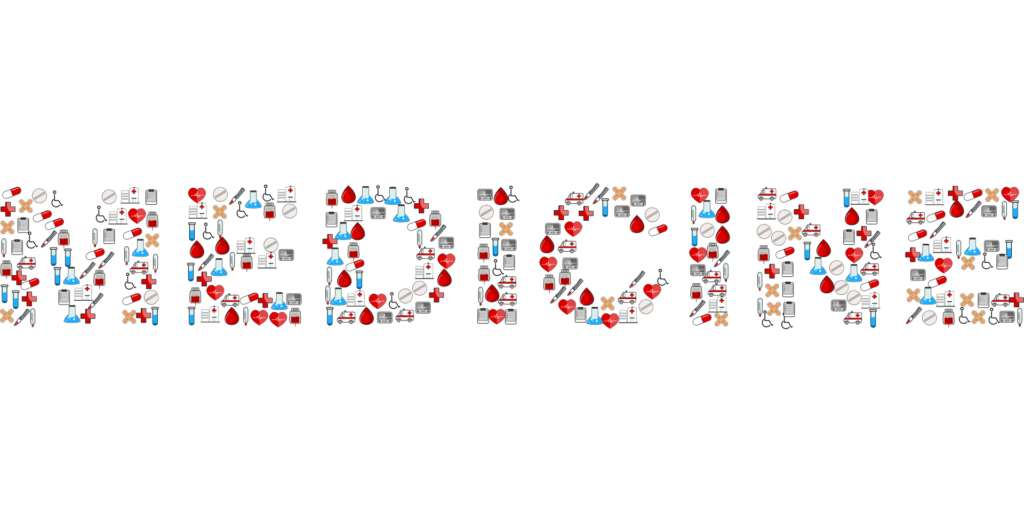ADHD Treatment
Do you know someone who keeps getting interrupted by squirrels? Perhaps it is time to consider treatment for ADHD.
ADHD TREATMENT
At the Morrison Clinic, our number one priority is to minimize the amount of medications needed for ADHD treatment. As such we feel it is important to educate our patients about ADHD and explore how these symptoms impact their daily life. Once we have a better idea of problem areas, we can tailor an ADHD treatment plan that meets the individual’s needs.
What is ADHD?
The prefrontal cortex , located right behind your forehead, does not function well when you have ADHD. You can think of it as your filter. It filters out stimulus in your environment so that you can focus on one thing at time. For people that don’t have ADHD this part of the brain filters out background noise so that they can focus on the most important task at hand. The “background noise” it filters could be actual noises but could also be things that cross their line of vision or even their own thoughts. It basically helps filter out distractions.
How is the ADHD Attention Span Different?
However the prefrontal cortex does not work well in people with ADHD. This leaves them incapable of CONSISTENTLY filtering out background noise. They are able to focus on one thing at a time IF interesting and grabs their attention. When that is the case their focus becomes impenetrable and they enter into a state called hyper-focusing. They can spend extended periods of time “in the zone” and hours pass and it feels like minutes. When in this state they filter out background noise so well they will not hear their name being called or notice obvious changes in their environment.
When do People with ADHD Find it Hard to Focus?
The ADHD attention span is like a light switch. When something grabs the attention of a person with ADHD then the switch is on and they can hyper focus. However it is the exact opposite of this when they are trying to focus on a boring or mundane task. In that case the switch is off. It is like pulling teeth to pay attention. Their brains are running rapid and are unable to filter out the background noise. So while they are trying to focus on reading a paragraph of a boring book they pick up on the noises around them, shiny objects and their own random thoughts serve as an additional source of distraction. In fact people with ADHD probably have more thoughts before 10 am then other people have all day.
Why do People with ADHD Find it Hard to Listen Well?
People with ADHD struggle to absorb boring and mundane things that people say. If information is not presented in a way that GRABS their attention then their prefrontal cortex won’t be able to filter out the background noise. The example I give patients in my office is to pretend that I am very boring. (This takes some pretending because I have such a dynamic and captivating personality.) I ask them if they have struggled to filter out the “background noise” during our conversation. They aren’t always sure so I ask them if any of the following distracted them: the cars driving by, the pictures of my two beautiful kids, the noise of the A/C unit, their own random thoughts, the shiny lamp in the corner, etc. Their eyes get big and they all say “YES!!”
Why do People with ADHD Find it Hard to Sustain Attention for a Decent Period of Time?
Take my patient who was trying to listen to me. In that short period of time she had to try to push out many intruders that comprised her attention span. There was the noise of the A/C unit, the visual stimulus of cars driving by, pictures, shiny objects, and of course her own random thoughts. Anyone that has to actively try to ignore that much stimulus is going to miss the details of the task at hand. When trying to read a book she will find herself re-reading the same paragraph many times. Consider her conversations with her loved ones and how her wandering mind means she leaves the conversation without really remembering what was said. Imagine the difficulty she will have paying attention in a boring meeting or a classroom lecture. In all of these situations she will feel frustrated and mentally exhausted as she tries to filter out the background noise to focus on what is being said.
Why do People with ADHD Procrastinate?
People with ADHD tend to avoid mundane tasks. The extra mental effort it takes to filter out background noise is exhausting, frustrating, and utterly uncomfortable. The longer they put off the task the more stressed they become and then reach a magical place called “crunch time”. Crunch time is the one of the few ways a person with ADHD can focus on a mundane task. The heat of a looming deadline flips the switch on their filter. In a short period of time they churn out a tremendous amount of work. They can whip out a paper, cram for a test, or finish a project with results that are nothing short of amazing. However, the emotional toll of the anxiety this produces is destructive for both the patient and the people around them.
What are the options for ADHD treatment?
Unfortunately, as much as we like to minimize the use of medication at the Morrison Clinic, it still remains the gold standard ADHD treatment. In fact, adults with untreated ADHD are two times more likely to have fatal car accidents, two times more likely to go through a divorce, and are five times more likely to significant impulse control problems. As such we recommended that our patient’s ADHD treatment starts with medication. We minimize the dose of medication by identifying problem areas that can improve by developing coping skills. Coping skills are vital in the treatment of ADHD. It is important to cultivate organization and time management skills and tools to help cope with hyperactivity and distractibility. We work with you to find a therapist or ADHD coach that can help you implement these skills into your daily life.
What medications are used for ADHD treatment?
The gold standard medications for ADHD treatment are stimulants. It seems confusing that someone with hyperactivity would take a stimulant to calm down. However, it makes perfect sense if you understand the biology behind ADHD. People with ADHD do not make enough stimulants in their brain. Therefore, they typically wake up tired, lethargic, and their brain runs to slow. If they sit still early in the morning they often fall asleep or struggle to feel alert. From a survival of the fittest standpoint, this is not good. For instance, if you have lions and tigers and bears hunting a herd of humans, then the lethargic and slow ADHD person would get picked off from the herd. The central nervous system of the person with ADHD adapts to the lethargy by causing hyperactivity. As a consequence, the brain and body become hyperactive in order to be vigilant. If your brain is running lightening fast, then you will be more alert to the lions and tigers and bears. On that same note, if your body is constantly moving, fidgeting, and restless then you will be more physically responsive to an attack on your safety.
What results should I expect from medication used for ADHD treatment?
When a person with ADHD takes a stimulant their energy, motivation, and concentration improve. They are able to stay vigilant. Their brain no longer feels the need to kick into hyperactive compensation mode. As a result, their hyperactivity improves and their brain slows down. They also become less impulsive and are able to process the world around them more effectively. In turn, they are able to think before they act. Once on a stimulant medication, the person with ADHD has a noticeable improvement in attention span which helps with learning and retaining new information. These improvements give them the capacity to learn and develop coping skills and tools. At the Morrison Clinic we recommend working with a therapist who has experience with ADHD treatment. The stimulant medication does not give you the skills you will need to offset all of the symptoms of ADHD.
Scheduling your ADHD treatment appointment
As you can see, ADHD treatment with medication is an important starting place in improving your quality of life. You will get the best results if you work with a specialist who is trained in ADHD. Amy Morrison has 11 years of experience managing patients with ADHD. Moreover, she is also a national speaker who educates doctors, PAs, and other health care providers about ADHD treatment. She treats patients who have already been diagnosed with ADHD and also provides ADHD evaluations. Each patient will also under go computerized psychological testing at each appointment. The testing results are used to objectively measure ADHD treatment results.
Click the button below to schedule your appointment
New Patient Intake and ScreeningAdditional ADHD Treatment Resources and Information:
If you would like to learn more about ADHD we recommend you visit the websites ADDitude Magazine and CHADD AND follow our Pinterest boards and Facebook page.
